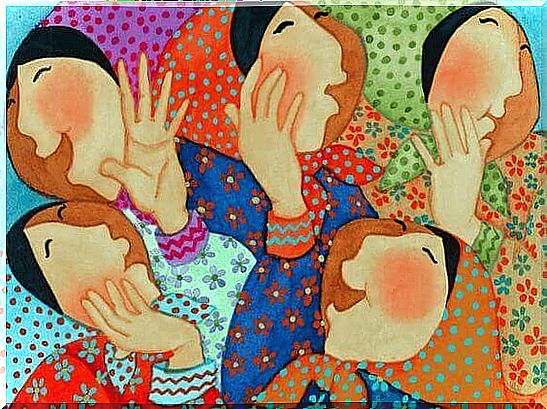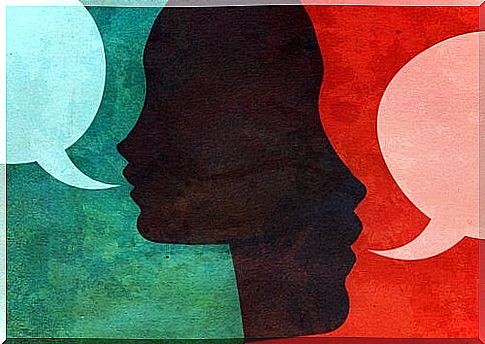Fear Doesn’t Limit Real People

Fear does not limit genuine people. They express their thoughts and act on them. But to be able to do this, they need to be able to identify how, when, to whom, and why they are doing so. They need to learn to control their personal space and tone of voice. In other words, they need social skills.
Social skills mean much more than just expressing opinions. They are the basis for effective and satisfactory interaction with others. They allow us to introduce ourselves to the world around us .
We could also say that social skills are our social identity card. They reveal what is most essential to us as human beings. Therefore, they are not only useful to become real people, but to be psychologically healthy and to connect with our environment.

Real people know how to listen
Real people think before they speak. They listen carefully to what their interlocutors are saying. They are empathetic to their interlocutors. They understand that there is no need to agree on everything, but everyone has the right to be heard equally.
Our worst communication mistake is that we don’t listen to understand, but to respond. Often we don’t even invest in listening to others.
Active listening is a skill that can be learned. It involves paying attention to one, responding to the other’s messages, respecting their speech, and maintaining the right kind of body language. Here are some keys to help you become a good interlocutor:
- Keep your body language open. Make eye contact with the person you are talking to and keep your expression relaxed. He nods from time to time to show that your attention is attached to them. Avoid crossing your arms and legs, as these seemingly minor physical barriers can discourage others from opening up to you.
- Don’t interrupt another. The temptation to interrupt another’s speech to show that you understand his or her message, or to explain why they think they are wrong, can be great at times. However, this is rude. Courtesy, keep your tongue in check until your interlocutor has finished speaking.
- Help form a dialogue. The strongest expression to form a dialogue is “tell”. It feels good when someone asks relevant questions and actively listens to the other’s answers to them. This shows the interlocutor to listen and be compassionate to the speaker.
- Let him talk. Remember that this is a dialogue and not a one-to-one conversation. Involve your partner in the discussion by asking questions or asking interesting topics for discussion. Never monopolize conversation.

Real people don’t always have to please others
Real people don’t always like others because they know when to say “yes” and when to say “no”. They know how to agree as well as disagree without being guilty. They have developed a social skill called self-confidence.
Self-confidence is a form of communication that involves defending one’s own rights, expressing one’s own opinions, and making suggestions honestly, without being passive or aggressive. It is about respecting others, but above all respecting one’s own needs.
This is an important skill because expressing your own real needs and defending your own rights can be incredibly therapeutic. When you express what you want, whether you get it or not, you can live a happier and more authentic life.
The first step to greater self-confidence is to identify your own feelings as well as your communication needs. If you are honest and understand that others are unable to read your thoughts, nothing you say is wrong. Keep in mind, however, that the speech of others must be respected and that the truth you are defending is yours, not the absolute truth. Remember, we always see things from our own perspective, which is just as valid as the perspectives of others.
Regarding the tone, it should be said that maintaining the right tone and avoiding raising the volume will help strengthen your opinions. Remember, shouting won’t help you be any more right. In fact, it generally diminishes the value of your message in the minds of listeners. The same thing happens with distance. When you get too close to another, you may seem aggressive. This in turn can make communication more complex. Respect the personal space of others.

Social skills are learned
If you want to be a real person but don’t yet master the above skills, there is no need to worry. These are skills that can be learned. They do not come as a gift of birth, instead they can be developed through observation and experience.
During the first few years of life, the foundation is laid for the development of these skills. However, this does not mean that when they reach the age of majority, the time for their development is over. There are many psychological programs that teach social skills. Most of them involve both immediate social experiences and imitations and reinforcement to learn these skills.
Therefore, if you are not yet fully in control of social skills, contact a psychologist and follow the steps outlined in this article. That way you can learn to become a true individual and express yourself without fear.









